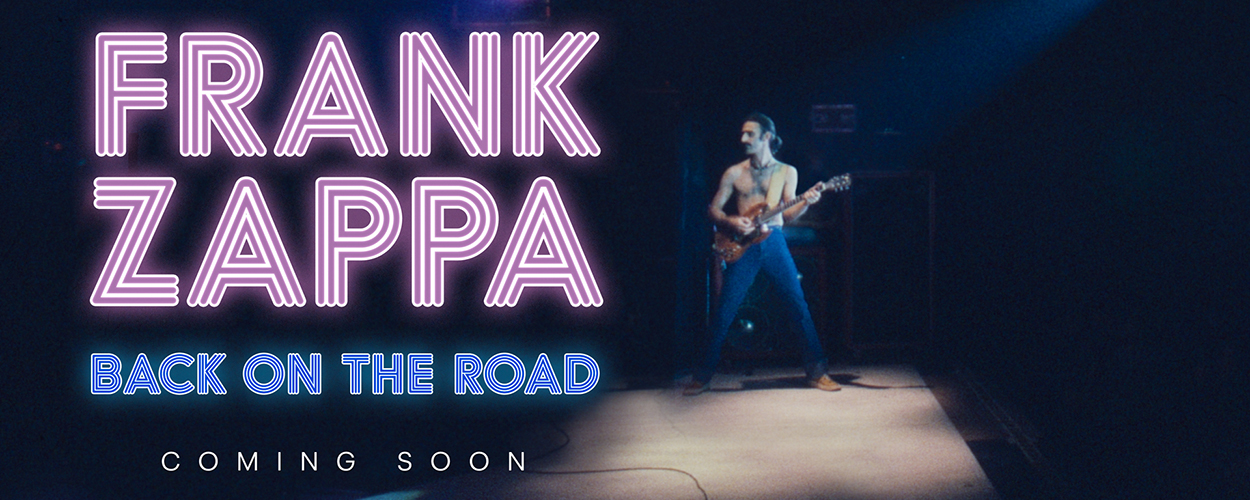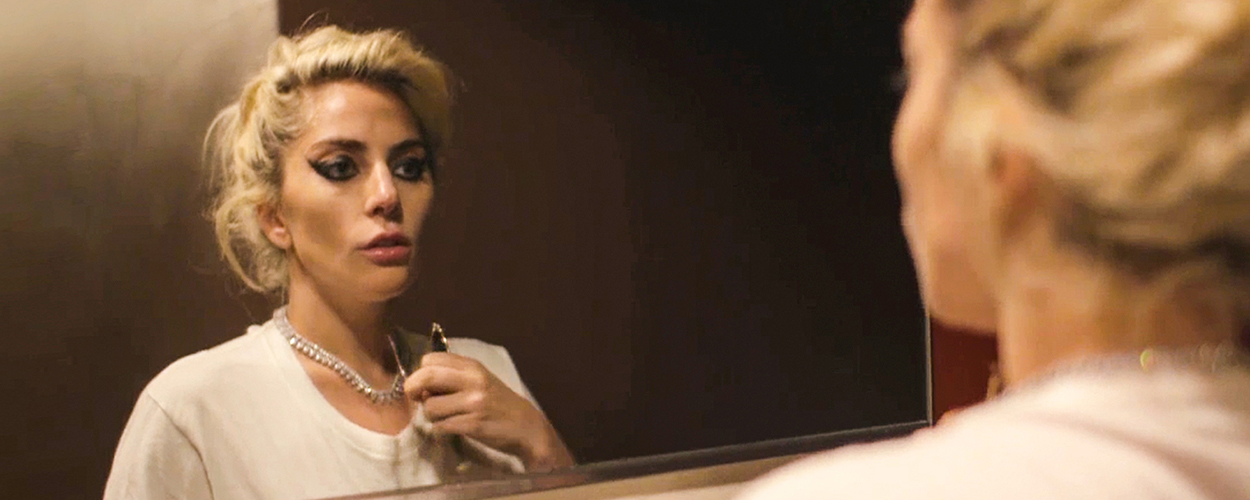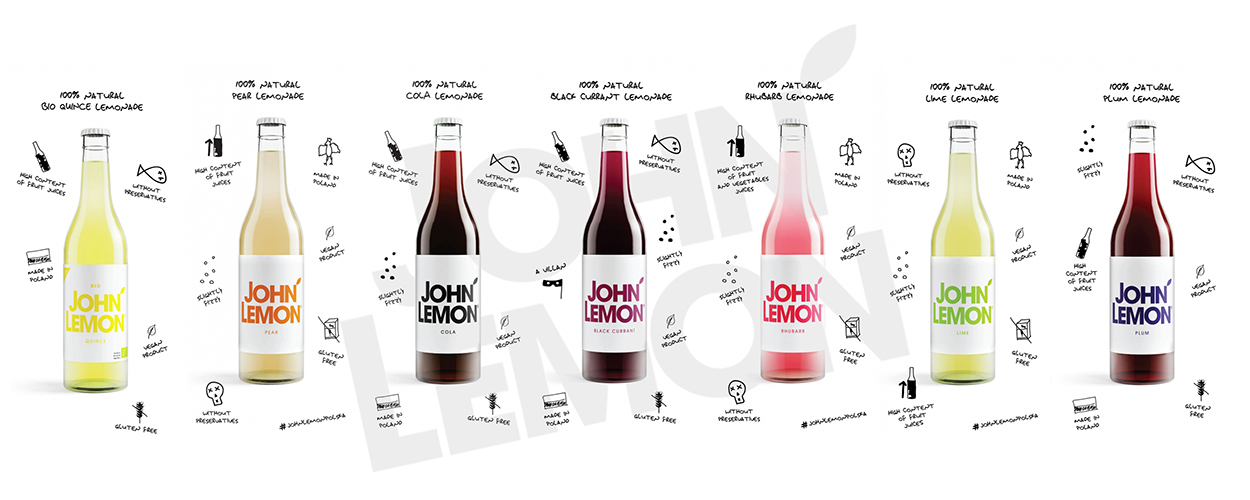This website uses cookies so that we can provide you with the best user experience possible. Cookie information is stored in your browser and performs functions such as recognising you when you return to our website and helping our team to understand which sections of the website you find most interesting and useful.
Friday 22 September 2017, 13:26 | By Andy Malt
Sheffield Arena secures Doncaster Sheffield Airport sponsorship
Brands & Merch Business News Deals Live Business

Sheffield Arena has announced the end of its two year headline sponsorship drought, having sold its naming rights to Doncaster Sheffield Airport. It will henceforth be known by the not at all daft sounding name, the FlyDSA Arena.
Opened in 1991, the Sheffield Arena became the Hallam FM Arena between 2002 and 2007. It then called itself the Motorpoint Arena from 2010 until 2015, when the Derby-based car sales company shifted its sponsorship money to the Nottingham Arena. Motorpoint also sponsors the Cardiff Arena, a deal signed in 2011.
DSA operator Peel Airports has signed a three year deal to have a logo slapped on the front of the Sheffield Arena building, making a “six figure investment” for the privilege.
Peel Airports Chair Robert Hough says: “DSA is an airport the Sheffield City region and Yorkshire can be proud of; currently the fastest growing in the UK with more destinations and airlines than ever before and officially rated the best small airport in the UK. DSA and the Arena are key parts of Sheffield and the region’s leisure offering, so by working together we hope to attract even more visitors to the region”.
Alex Pettifer of the Sheffield City Trust, the charity that owns the Sheffield Arena, adds: “We are absolutely delighted to be working with DSA on this new chapter of the Arena’s history. Both DSA and the Arena are integral to the region’s economy and the significant contribution from both organisations supports the continued growth of visitor’s to South Yorkshire, from across the county and further afield. This is a brilliant example of positive collaboration between two integral local businesses and we look forward to welcoming visitors to FlyDSA Arena very soon”.
READ MORE ABOUT: Sheffield Arena
Friday 22 September 2017, 13:22 | By Andy Malt
Cosa Nostra PR hires Charley Bezer for US expansion
Business News Industry People Marketing & PR

UK rock and metal PR agency Cosa Nostra has announced its expansion into the US with the hiring of Charley Bezer, who is now based in LA.
Commenting on the new hire, Kirsten Sprinks, who co-founded the agency with Michelle Kerr, says: “This is the natural evolutionary step for Cosa Nostra to take; allowing us to deliver market-specific campaigns for our clients and still maintain a cohesive message. The challenge was always how to achieve it whilst maintaining the high standards and exceptional results that we have a hard-earned reputation for”.
She goes on: “Having Charley on board allows us to achieve that and so much more. Charley’s experience and skills in the industry, combined with exactly the kind of love for the heavy music genre that Cosa Nostra was founded on, make her the perfect person to represent us and our clients. I’m delighted to have her working with us”.
Bezer adds: “I couldn’t be more honoured to have been asked to work with Michelle and Kirsten overseeing Cosa Nostra’s US expansion. They are two of the very best in our profession. Their roster speaks for itself and they share my vision for what music PR can and should be”.
She adds: “Having offices on both sides of the pond means Cosa Nostra will be in the unique position to provide clients with truly aligned campaigns, with one team spanning both territories, able to offer a forward thinking alternative to traditional and somewhat dated music PR offerings. We feel it’s time for the game to change and I cannot wait to get started”.
Sprinks and Kerr launched Cosa Nostra in 2012, following the closure of Roadrunner Records’ UK office. Bezer was formerly Head Of PR at Live Nation UK.
READ MORE ABOUT: Charley Bezer | Cosa Nostra PR
Friday 22 September 2017, 13:15 | By Andy Malt
Paloma Faith announces political new album, tour dates
Artist News Gigs & Festivals Releases

Paloma Faith has announced that she will return with her fourth album, ‘The Architect’, on 17 Nov. Her last LP, ‘A Perfect Contradiction’, was released in 2014.
Working with Sia, John Legend, Starsmith, Tobias Jesso Jr, Eg White and Rag N Bone Man, as well as actor Samuel L Jackson and journalist Owen Jones, among others, the record sees Faith taking a political view on the state of the world
“‘The Architect’ is a social observation record”, she says. “I was adamant that I wouldn’t write about love. I wanted to look outside of myself. I’m coming at politics from the perspective of the common man or woman, observing why people are suffering. Each song on the record is about a different pocket of the socio-political world that I’ve been delving into”.
She continues: “I wanted to write something more modern. On previous albums I’ve been more concerned with the past, but now I’m looking forward because of motherhood and wanting to change things for a better future. It’s a marriage of old and new”.
Alongside the album announcement comes the video for first single ‘Crybaby’. Watch that here:
She’s also announced UK tour dates for March next year, which are as follows:
2 Mar: Leeds, First Direct Arena
3 Mar: Nottingham, Motorpoint Arena
5 Mar: Aberdeen, BHGE Arena
6 Mar: Glasgow, SSE Hydro
8 Mar: Manchester Arena
9 Mar: Newcastle, Metro Radio Arena
11 Mar: Bournemouth, BIC
12 Mar: Brighton Centre
14 Mar: London, O2 Arena
17 Mar: Cardiff, Motorpoint Arena
20 Mar: Liverpool Echo Arena
21 Mar: Birmingham, Genting Arena
23 Mar: Belfast, SSE Arena
24 Mar: Dublin, 3Arena
READ MORE ABOUT: Paloma Faith
Friday 22 September 2017, 13:12 | By Andy Malt
Frank Zappa ‘hologram’ to tour next year
Artist News Digital Gigs & Festivals

Frank Zappa will be heading out on tour next year. Well, a ‘hologram’ representation of Frank Zappa. Him being dead and all.
The Frank Zappa Family Trust is working with hologram production company Eyellusion on the project, with plans to bring the musician back to the stage in 2018. It’s hoped that a number of musicians who performed with him while he was alive, and others who didn’t, will join the virtual representation of Zappa for the shows.
“I’m THRILLED that Frank Zappa will finally be going back out on tour playing his most well-known music as well as some rare and unheard material”, says Ahmet Zappa, son of Frank and executor of the Trust, as if it was always a foregone conclusion.
“We can’t wait to bring his creative work back to the stage with the musicians he loved to play with” he adds, “such as Steve Vai, Ian Underwood, Adrian Belew, Arthur Barrow, Vinnie Colaiuta, Scott Thunes, Mike Keneally, Denny Walley, Warren Cuccurullo and Napoleon Murphy Brock, among others who are committed to being part of this epic endeavour. When I spoke with them, they were excited at the prospect of performing alongside Frank once again and can’t wait to give fans an unforgettable experience”.
Also, he continues: “How radical would it be to have [Zappa’s daughter] Moon singing ‘Valley Girl’ onstage with Frank? Or to see [his other son] Dweezil side by side with our father playing duelling guitar solos? That would be my greatest wish and I look forward to bringing this special celebration of Frank’s legacy to a town near you. But if that wasn’t enough Zappa coolness, we’re also planning on staging [Zappa’s rock opera] ‘Joe’s Garage The Musical’ with none other than Frank Zappa himself starring as the Central Scrutinizer”.
Eyellusion CEO Jeff Pezzuti adds: “We are THRILLED to welcome such a monumental and important artist to our line-up of planned live music hologram productions. Frank Zappa was an incredible musician, unmatched in his output, tackled so many different genres and influenced a generation of artists that would go on to help further shape rock and pop for decades to come. We are music lovers first and can’t wait to get to work on yet another show that lets fans experience such timeless and important music in a live concert setting”.
As well as helping to oversee the Frank Zappa hologram project, Ahmet Zappa is also joining Eyellusion to head up its global business development team. As previously reported, the company launched last year with a virtual performance by Ronnie James Dio at the Wacken Open Air festival in Germany.
READ MORE ABOUT: Eyellusion | Frank Zappa
Friday 22 September 2017, 12:53 | By Andy Malt
One Liners: Lady Gaga, Rapsody, Anne-Marie, more
Artist News Awards Gigs & Festivals Media One Liners Releases

Other notable announcements and developments today…
• New Lady Gaga documentary ‘Five Foot Two’ is now available on Netflix.
• Kendrick Lamar and Lance Skiiiwalker appear on Rapsody’s new single ‘Power’. Her debut album, ‘Laila’s Wisdom’, is also out today.
• Anne-Marie has released new single, ‘Heavy’.
• Kelela has released a behind-the-scenes view of the video for her latest single, ‘LMK’. Her debut album proper is set for release by Warp on 6 Oct.
• Charlotte Gainsbourg has released the video for new single ‘Deadly Valentine’.
• Angel Olsen will release a new collection of rarities called ‘Phases’ on 10 Nov. From it, here’s ‘Special’ and ‘Fly On The Wall’.
• The Cornshed Sisters have released new single, ‘Running’. Their new album, ‘Honey & Tar’ is out on 4 Nov.
• Corbin (fka Spooky Black) has released the video for new single ‘Hunker Down’.
• Having been given a credit on Taylor Swift’s ‘Look What You Made Me Do’, Right Said Fred have now released a live version of ‘I’m Too Sexy sampling the Swift song. It doesn’t quite work.
• Fall Out Boy will play Electric Brixton in London on 11 Jan. Tickets on sale now.
• The nominees for this year’s UK Music Video Awards have been announced. Check them out here.
• Check out our weekly Spotify playlist of new music featured in the CMU Daily – updated every Friday.
READ MORE ABOUT: Angel Olsen | Anne-Marie | Charlotte Gainsbourg | Corbin | Fall Out Boy | Kelela | Kendrick Lamar | Lady Gaga | Lance Skiiiwalker | Netflix | Rapsody | Right Said Fred | Taylor Swift | The Cornshed Sisters | UK Music Video Awards
Friday 22 September 2017, 12:52 | By Andy Malt
Beef Of The Week #373: Frank Turner v Punk Rock
And Finally Artist News Beef Of The Week Education & Events

Frank Turner has announced that he’s putting on his own outdoor event in the US next summer, called Campfire Punkrock. It’s not a festival, more a five day camping trip with Turner and his band. There’ll be food, music lessons, you’ll all write a song together, and it will only cost a minimum of $999. If you fancy sleeping indoors, the prices go up as high as $2499 for a luxury cottage option.
While four nights on a campsite for $999 inclusive of meals, non-alcoholic beverages, activities and some live music performances isn’t actually terrible value, a wide assortment of people were quick to point out that the whole thing didn’t seem particularly ‘punk rock’. In fact, if you consult the official list of things that aren’t punk rock, you’ll find these:
7. Events that are prohibitively expensive
12. Instrument lessons
32. Campfires
76. Luxury cottages
So really the beefing here comes down to the name. Had the event been called Frank Turner’s Old-Timey Music Education Camp, perhaps no one would have complained. No one would have bought tickets either, but that’s beside the point.
Actually, the venue for all this – the Full Moon Resort in New York State – puts on this sort of thing quite frequently, under the name Music Masters Camp, which is a lot snappier than my suggestion. Artists such as Dweezil Zappa, Richard Thompson and Steve Earl have also lain under the stars writing music with their fans.
Perhaps Turner didn’t feel right referring to himself as a ‘music master’. Certainly, had he consulted the list of non-punk rock things, he would have found that at number four.
Either way, Turner decided to name his version of the Music Masters Camp concept after his debut EP. First ‘Campfire Punkrock’ the record, now ‘Campfire Punkrock’ the event, it must have seemed like his whole solo career had been building up to this point. It really must have seemed perfect.
And it may well have been, had the cheapest ticket not been $999. And that’s before you factor in actually getting to the campsite. Because, in hindsight, putting ‘punk rock’ into an event’s name when the price point means your average fan is unlikely to be able to afford to attend is quite a silly idea.
The event’s website describes the whole hurrah thus: “Ultimately, the common thread through the Campfire Punkrock experience is the integration of instructional and social elements, as well as personal interface with the artists – not only at workshops and jam sessions, but also at breakfast, lunch and dinner and throughout evening activities”.
26. Jam sessions
It continues: “Whether you are a musician or an enthusiastic fan, Campfire Punkrock is specifically designed to provide an inspirational and interactive experience, offering the opportunity to truly take a step ‘Beyond Backstage'”.
97. Considering oneself inspirational
137. Truly taking a step ‘Beyond Backstage’
Upon arrival there will be a “meet and greet, including open bar and served hors d’oeuvres, followed by gourmet dinner, camp orientation and an opening night solo performance by Frank Turner”.
57. Meet and greets
64. Hors d’oeuvres
82. Gourmet dinners
104. Camp orientations
236. Frank Turner solo performances (someone has pencilled this in at the bottom of my copy of the ‘things that aren’t punk rock’ list, I’m not sure it’s an official one)
Over the five days “you and your fellow PUNKROCKERS will help Frank Turner write a new song which will be performed by Frank Turner And The Sleeping Souls at the closing night concert! Other activities include masterclasses, open rehearsals, ensemble workshops and specific instrument lessons”.
136. Referring to a group of people as ‘PUNKROCKERS’
61. Masterclasses
62. Open rehearsals
63. Ensemble workshops
The announcement was mainly met with ridicule on the social networks. And a little annoyance in some quarters. At least one Frank Turner superfan I seem to be Facebook friends with announced angrily that they were now entirely done with him.
But the ridicule and annoyance is unfair, reckons Turner.
“Like Peter Buck, Melissa Auf Der Maur, Todd Rungren, Richard Thompson and many others before me, I’m doing a Music Masters Camp next summer in upstate New York, in amongst the rest of my regular touring schedule”, he told the NME. “It’s an all-inclusive package, four nights full bed and board in a resort, so it might not be for everyone, but it’s just one small event among everything else I’ll be doing next year – releasing a new record, with the usual run of tours, festivals and benefit shows that comes with thatBottom of Form. I work hard to make sure that what I do is accessible to everyone. If I don’t see people at the camp, there will be plenty of other shows where we can hang out”.
4. Referring to yourself as a ‘music master’
189. Doing anything that Todd Rungren has done previously
READ MORE ABOUT: Frank Turner
Friday 22 September 2017, 12:27 | By Paul Vig
Vigsy’s Festival Tip: Hospitality In The Park
Club Tip CMU Approved

Hospital Records presents the second edition of its definitive London drum n bass festival in Finsbury Park this weekend.
The main draw for me is that Roni Size will perform his 1997 Mercury Award winning album ‘New Forms’ – which celebrates its two decades this year – live on the main stage. The full potential of a live version of that album was on show when I saw them at Tribal Gathering all the way back in 1997 in a rather pokey dnb tent. I think we are in for a full-on live offering of this awesome seminal album this time around.
Also taking to the main stage will be the London Elektricity Big Band, fronted by Hospital Records founder Tony Colman, with vocals from Liane Carroll and Dynamite MC. There will also be DJ sets from Alix Perez, Danny Byrd, Sir Spyro, Fred V and Grafix.
Over seven more stages are a whole host of movers and groovers, including Calyx and Teebee, Kenny Ken, Randall, LTJ Bukem, ST Files, Chris Goss, Dom Servini, Clipz, DRS and Calibre doing a Marcus Intalex tribute set.
A big old line-up!
Saturday 23 Sep, Finsbury Park, London, N4, 11am-12.30pm, £50. More info here.
READ MORE ABOUT: Hospital Records | Hospitality In The Park | Roni Size
Friday 22 September 2017, 09:40 | By Chris Cooke
Trends: Global music data and blockchain – the story so far
CMU Trends

Data has been a frequent topic of debate within the music community in recent years. Though data is a term that covers a multitude of things, so in fact the music industry’s data debate is actually a number of different discussions.
Firstly there is the fan data to be pulled from the streaming platforms, social media, ticketing services and direct-to-fan channels. Who has access to this data and what should artists and their business partners do with it to inform their business, creative and marketing decisions?
Second there is financial data, what monies have been generated by an artist’s different activities, and how is that money being distributed between the different stakeholders in the music industry?
In the streaming domain in particular, decent royalty information is too often lacking, in that artists know what money they are receiving, but they don’t always know how that figure was calculated. Though at the same time, with streaming being a micro-payments business, artists and their managers would be swamped if they got a line of data for every single stream.
Third, there is the impact that big data and so called machine learning could have on the future of the music industry, in terms of how artists interact with fans, how royalties are calculated and paid, how music is recognised and curated, and even how music is made.
And fourth there is the debate around music rights data. Pretty much everyone agrees that the music industry needs to do a better job of letting the world know who wrote each song, who performed on each record, and which artists, songwriters, labels, distributors, publishers and collecting societies have control over and/or a stake in any one piece of music.
Despite much debate on the music rights data issue, and plenty of initiatives attempting to address it, problems remain. Indeed, at the heart of developing news stories like Spotify’s mechanical royalties dispute in the US – and the claim that streaming services are ignoring the moral rights of songwriters by failing to credit them – sits the big unresolved music rights data problem.
As Music 4.5 puts the spotlight back on data in music this month, we review that latter challenge, and ask four of the people presenting at next week’s event about persisting problems and possible solutions.
ORIGINS OF THE PROBLEM
In most countries, copyright is an automatic right, which means no registration is involved. So, from a music perspective, as soon as song is written a copyright exists in it, and likewise as soon as a recording is made. There is no form to fill out, no registration fees to be paid.
The law then tells us who the default or presumed owner of the copyright is. Copyrights can be co-owned. With songs, the default owner is the writer, and where writers collaborate they co-own the resulting copyright. How the copyright is shared out is for the collaborators to decide.
Copyright can also usually be transferred, so a default owner can assign the copyright in current and future works to another party. Even where actual assignment doesn’t take place, a default owner may license some or all of their rights to another party, who will likely act as if they are the copyright owner until the licence expires.
When copyrights are transferred to other parties, it may be for life of copyright or for a set period of time, and may only apply in some countries. Plus different elements of the copyright – such as the ‘reproduction rights’ and the ‘performing rights’ – might be transferred to different entities. In the UK, songwriters commonly assign the reproduction (or ‘mechanical’) rights in their songs to a publisher, but the performing rights to their collecting society, ie PRS.
If a third party wants to make use of a song or recording, they must get permission from the copyright owner, or owners. Step one of that process is working out who owns the relevant rights. If it’s an existing track being used, there will be both song rights and recording rights to be licensed, which will likely be owned by different entities. The song rights may well be co-owned by multiple entities. And who you need to talk to may well vary depending on which elements of the copyright you need to exploit, what exactly you plan to do with the music, and what countries you’re operating in.
So music licensing can be complex. Though perhaps the biggest challenge is the working out who you need to a deal with in the first place. Because there is no statutory copyright register in most countries – copyright being an automatic right – and the music industry doesn’t provide a one-stop publicly-accessible database listing every song and every recording, identifying what song is contained in what recording, and listing who owns and controls each element of each copyright in each territory.
The growth of global digital music services offering tens of millions of tracks made the lack of decent music rights data an ever more pressing problem. With that in mind, the music publishing sector famously attempted to build a Global Repertoire Database, hiring Deloitte to do the groundwork. But the GRD project – which would initially have only containing song rights information, not recording rights – ultimately collapsed.
However, there are plenty of other initiatives under way to try to address the music rights data problem. Some are being led by the music industry’s collecting societies, which manage song and recording rights in collective licensing scenarios, and who are usually sitting on the best music rights databases that currently exist. Others are being led by commercial entities and start-ups, some within and some outside the music community.
Although, as the aforementioned Spotify mechanicals litigation and the controversy around the lack of songwriter credits in the streaming domain both prove, the music rights data problem still persists, and is having a tangible negative impact on the music industry, and especially the increasingly key streaming music business.
SHARING THE DATA
While there is no one-stop publicly-accessible music rights database, that’s not to say there aren’t any music rights databases out there. In fact there are lots and lots of music rights databases, which is partly the problem. No one database is complete. Many databases contain just song data or just recording data, and therefore don’t match tracks to songs. There is conflicting information between different databases. And most of the decent databases are private.
There is an argument that a good step forward to cracking the music rights data problem would be for everyone sitting on an existing database to make the top line basic copyright ownership information public, so that data-clever start-ups could grab that information, clean it up, and then build a bunch of decent music data tools from it.
Robert Kaye from MusicBrainz – the publicly accessible “open music encyclopaedia” that already aggregates, through crowd-sourcing, the music metadata that is public domain – reckons that such data-sharing by record labels and music publishers could help address a number of the issues – and they wouldn’t actually have to give up control of their databases to do this.
“If every label and publisher could set up an API that gives the public access to their repertoire data, copyright status, and so on, this would go a long way towards building a system where no one has to give up their cherished control over their own data”, he says. “People and companies wishing to license content could easily discover who owns the copyright to a particular song or recording; this API could also provide licensing terms for said content in an effort to streamline the whole process”.
For such data-sharing to work, there would need to be some industry oversight. “Conflicting copyright claims and policing the actors in this system would need to be carefully addressed”, Kaye concedes. “But I can see a non-profit ombudsman providing API standards, reference implementations and conflict resolution services. Bad actors carrying out bad acts could be financially punished in order fund the operation of the non-profit”.
In terms of logistics, Kaye reckons that “this system could be implemented quite cheaply as long as you engaged the right people – more the likes of [MusicBrainz operator] MetaBrainz and less the Deloittes of the world – without entities giving up control over their data”. Though, Kaye adds, while the potential solution could be relatively simple and cost efficient, that doesn’t make him optimistic that any solution is incoming. “Any sort of broad co-operation like this is still wishful thinking in the music industry”.
Fewer players would need to be involved in such a data-sharing enterprise if it was led by the collecting societies rather than individual labels and publishers. But Kaye doesn’t see any real appetite in the collecting society community to instigate widespread data-sharing in the public domain.
“Making data public forces people to do two things – first, do their job, and second, do their job correctly”, he says. “Societies love hiding in opacity. They love putting money into the pockets of the people who buy them loads of sushi and take them out for drinks and all that”.
Phil Barry of Blokur, a start-up seeking to help fix the music rights data problem, is more optimistic about persuading the music industry to get better at sharing its data, though adds that another issue alongside data availability is data standards. Indeed he reckons the latter might be the bigger issue.
“I think the problem is less the availability of data and more the challenge of piecing together all the different parts of the data puzzle that are out there and reconciling conflicts between different databases. The challenge there is a web of different standards and systems that don’t speak to each other and don’t update synchronously”.
While, as Kaye reckons, collecting societies may be resistant to sharing too much data because it would put the spotlight on inefficiencies in the collective licensing system, another issue may be that societies worry that – if there was a decent one-stop publicly-accessible music rights data platform out there – the power of the collective may be reduced.
One of the reasons why collective licensing has always made so much sense, especially with song rights, is that licensees can pass on the hassle of working out who controls the songs they’ve used to the society. Which may or may not then do a good job of getting the money to the right writers and publishers.
However, Barry reckons that the societies shouldn’t worry about there being more music rights data in the public domain. “Bringing the necessary data out into the open” he says, “is really a case of aligning incentives so that people can see the value they get from participation”.
“Until or unless there is a viable alternative to collective licensing, societies will continue to be an important part of our industry, and it is important to remember that they are mandated to defend the interests of songwriters and publishers”, he adds. “We work with societies to help them ensure they are very much part of the solution”.
YOU GET OUT WHAT YOU PUT IN
Beyond the challenge of getting the right data to the right people, there is the question of whether or not the data controlled by different labels, publishers and collecting societies is actually any good.
For legacy data, that means a big data cleaning operation, which some societies have already begun by comparing and integrating their respective databases. Though with more new songs and recordings being pushed out each week than ever before, there is also the task of ensuring that data associated with new works is correct and complete.
Given that it is the actual writers, performers and record producers who know best what happened in the studio and rehearsal room, the music creative should be participating in this exercise, especially with song rights. Which is what start-up Auddly, backed by top pop music makers Max Martin and Björn Ulvaeus, aims to do, by providing the tools that make it easier for songwriters to discuss, agree and log how the copyright in the songs they write is being shared out.
Songwriter and journalist Helienne Lindvall has an industry and songwriter relations role with the company. “The reason I joined Auddly is because it presented a solution to one of the main reasons we have a problem with rights data, ie ‘garbage in, garbage out’”, she says. “As a songwriter myself, I know first hand how crap we are at logging what happens in the studio. Matter of fact, I’d say that, for most of my career I’ve simply assumed that the publisher took care of it all, until I realised that they could only go by what I was telling them – which, to be honest, wasn’t much”.
For established writers, a manager and publisher will likely still be involved in managing copyright information, though if writers can be persuaded to take an active interest in that process, everything should be more efficient. And, Lindvall says, that means “we need to educate music creators” because “the level of knowledge of rights among songwriters is extremely low”.
“I usually start my presentations by showing my fellow musicians the four codes needed to get paid”, she says. Those are the Interested Parties Information (IPI) and International Performer Number (IPN), as well as the International Standard Recording Code (ISRC) allocated to each track and the International Standard Musical Work Code (ISWC) allocated to each song. “The vast majority of them don’t recognise any of them”, says Lindvall. “Let alone know that they have an IPI and/or IPN number”.
“Secondly, they need to understand that there is a metadata problem”, she goes on. “And that they play a part in it. When we show them that logging this info doesn’t have to take up more than a minute or two on your smartphone, the penny drops”.
“Their and their co-writers’ publishers and managers can access the info instantly without having to chase them – which, in turn, leads to earlier registrations – that are clean, right from the start. No multiple ISWCs for the same song, no conflicting data, everything in one place from the people who know the truth – the creators”.
Getting writers to be persistently involved requires making the process as simple as possible. Which is what Auddly is aiming to achieve. “It’s vital to make it easy for music creators to log rights data without interrupting the creative process”, Lindvall reckons. “That can be achieved by using mobile phone technology, as well as facilitating capturing metadata in the audio stems while recording, using software such as Logic and ProTools”.
While the industry needs to provide the tools to help artists and songwriters in this domain, music creatives need to take an active interest and role, Lindvall reckons. She concludes: “As a songwriter, I don’t think a service should be allowed to use my song without knowing that I wrote it – and therefore who to pay. Would it be acceptable for Tesco to sell a sandwich without knowing where they got the ingredients or even what’s in it?”
“However”, she adds, “I’m also of the belief that if you want something done you need to do it yourself, if possible. And we, as songwriters, need to take some responsibility here. All this rights information collection doesn’t happen magically – we need to make sure the correct info is there from the start, and that it is accessible to the streaming companies. We need to take away any excuse a service might use for it not to be displayed”.
WHAT ABOUT THE BLOCKCHAIN?
For much of 2016, the music rights data debate within the music community got very distracted by this thing called the blockchain which, some people argued, could play a key role in solving the industry’s big data problem. Though, it should be noted, the blockchain – still best known as the technology that powers cryptocurrency BitCoin – is simply a potential method for distributing and storing music rights data. The data being shared still has to come from somewhere.
Vaughn McKenzie is the founder of JAAK, a company that seeks to use blockchain technologies to simplify the music licensing process. “At a high level, a blockchain includes a few things”, he explains. Those are: “A software that connects a computer to a peer-to-peer network; a file stored on every computer connected to that network and software that keeps the computer in sync with the latest version of that file; software for broadcasting new transactions to the network to be added to the file; software that decides who gets to add all of the new transactions from the network – the block – to the file containing all previous transactions – the blockchain”.
In some ways, it feels like the big buzz around blockchain in the music community that started two years ago was something of a distraction. Though plenty of people still advocate that the technology has a role to play. Barry’s company Blokur is also employing the blockchain in its music data solution. “When blockchain technology first entered the discussion on music data, the technology was still very immature and the ideas were not fully developed”, he concedes.
But, he adds, “since then both parts of the puzzle have progressed enormously. I remain convinced that blockchain technology can form the backbone of a new set of rights infrastructure for data, licensing and payments, due to unique characteristics like the ability to automate processes outside the boundaries of traditional organisations”.
McKenzie, while being a champion of the blockchain, stresses that the technology is part of the solution, rather than being some kind of panacea. “Blockchain is a state machine”, he says. “It’s great for ensuring that everyone connected has the current state of information, without the need to trust any one party”.
“The data problem in the music industry has many facets, including availability, accuracy, authority, provenance, inconsistency, to mention a few. Some of these are addressable by blockchain, some aren’t. Blockchain’s role in the music industry will depend entirely on adoption – we have a view on this, but there are others. The outcome remains to be seen”.
At the CMU Insights conference on all things data at The Great Escape in 2016, Kaye was one of the interviewees playing down the excitement around blockchain. Why? “Because politics in the industry and this deep seated fear of losing any bit of control or opacity will likely prevent the blockchain from working”.
“The technology itself is sound”, he adds. “I quite like it and the thinking that is coming out of it, even if it is mostly hype so far, beyond Bitcoin. Accepting distributed systems and transparency is a really big and important step for the world”.
There are different blockchains, and Kaye name-checks Etherum – the blockchain being used by JAAK – as being “quite interesting since it doesn’t have some of the same limitations that BitCoin has”. But, for him, picking the right technology is still not the main challenge. Because no blockchain comes with “magical solutions for fixing the political issues in the industry”.
READ MORE ABOUT: Blockchain | Music 4.5
Friday 22 September 2017, 09:00 | By Chris Cooke
CMU Digest 22.09.17: RIAA, UK Music, Spotify, Rolling Stone, New Order, Martin Garrix
CMU Digest

The key stories from the last seven days in the music business…
New figures from the Recording Industry Association Of America confirmed that the recorded music market in the US continues to grow thanks to the streaming boom. Retail revenues in the first half of this year were up about 17% to $4 billion. Though the RIAA stressed once again that the return to growth was being hindered by copyright laws that mean some streaming platforms are much more lucrative for rights owners than others, with safe harbour and YouTube the key concern. [READ MORE]
UK Music said that the music industry contributed £4.4 billion to the British economy in 2016, up 6% from 2015. That ‘gross value added’ figure was contained in the cross-sector trade group’s annual ‘Measuring Music’ report. Music publishing and the live sector saw the biggest increases in their GVA figures, though the record industry was also up 5% thanks to the streaming boom. [READ MORE]
A US court rejected Spotify’s ‘motion for a more definite statement’ in its latest mechanical royalties legal battle in the US. The streaming firm claimed that the latest lawsuits on unpaid mechanicals didn’t sufficiently make their case, in particular they didn’t explain why the claimants thought mechanical royalties were even due. But the judge ruled that the lawsuits had enough substance to proceed. Though that doesn’t necessarily stop Spotify putting forward its controversial new argument that on-demand streams don’t actually exploit the mechanical rights within songs. [READ MORE]
It was revealed that Rolling Stone magazine is up for sale. The magazine’s publisher Wenner Media – which sold a 49% stake in the title to Singapore-based BandLab Technologies last year – said it was now considering “strategic options for its majority interest in Rolling Stone to best position the brand for future growth”. [READ MORE]
New Order announced that they had settled their legal dispute with former bassist Peter Hook. He sued in 2015 over the way the band had structured their business affairs since reforming without him in 2011. The rest of the group also had issues with the way Hook makes use of various New Order and Joy Division assets with his new band. But the current line-up of New Order this week said that both parties had now agreed to a “full and final settlement”. [READ MORE]
Producer Martin Garrix won a legal battle with his former label Spinnin Records. Garrix parted company with and then sued the Spinnin label and its sister management firm MusicAllstars in 2015. He claimed that his ex-manager Eelko Van Kooten – founder of both Spinnin Records and MusicAllstars – had had a conflict of interest when he signed his management client to his own record company. This week a Dutch court agreed. [READ MORE]
The big deals from the last seven days in the music business…
• LiveXLive Media acquired Slacker Radio [INFO]
• SRD allied with IDOL on digital distribution [INFO]
• LAB Records allied with Warner’s ADA [INFO]
• Islington Assembly Hall allied with Dice [INFO]
• Warner/Chappell signed Andy Burrows [INFO]
• Sony/ATV extended its deal with Greg Kurstin [INFO]
• BMG signed The Prodigy [INFO]
READ MORE ABOUT: Martin Garrix | New Order | Peter Hook | Recordings Industry Association Of America (RIAA) | Rolling Stone | Spinnin Records | Spotify | UK Music
Thursday 21 September 2017, 12:02 | By Chris Cooke
Streaming boom keeps US record industry in growth, up 14.6% this year
Business News Digital Labels & Publishers Top Stories

Just in case you needed confirmation, which you might have done, I don’t know, I should have checked, but I’ve been busy and didn’t, but let’s just assume I did, that I set up a survey, you filled it out, and everything was confirmed that you needed everything confirmed, and so here I am with the confirmation that the recorded music industry is still in growth thanks to the streaming boom.
Well, today’s confirmation is specific to the American record industry, but that’s still the biggest recorded music market in the world, plus we’re seeing similar trends elsewhere.
According to the Recording Industry Association Of America, in the first half of 2017 retail revenues from recorded music Stateside were up approximately 17% to $4 billion, with wholesale revenues up about 14.6% to around $2.7 billion. It’s the streams that did it, of course, with revenues from all the various streaming services available in the US now accounting for 62% of the total American market, with total streaming revenues up 48% to $2.5 billion in the first six months of the year.
So that’s all groovy isn’t it? Oh, except, you need to note something. It’s important. Have you got a Post-It note? And one of those nice Sharpie pens? If not, maybe nip out to your local stationery store and get some. Or a pound shop. I mean, you won’t get the actual brand products there, but they’ll sell you something similar.
And then, once you have your Sharpie in one hand and your post-it pad in the other, you need to note the following. IN CAPITAL LETTERS. In your best hand writing. “Although recorded music revenues continue to grow, blah blah blah blah value gap, blah blah blah blah YouTube”. Got that? Good.
Writes RIAA big cheese Cary Sherman in one of those blog posts you all like so much: “We estimate that there may be a TRILLION streams in 2017, counting both on-demand services and digital radio (some 460 billion in first half of the year). Wrap your head around that staggering number. It is encouraging but also speaks to the foundational challenge that continues to confront the music community”.
A “foundational challenge” hey? Sounds like fun. “But what is that foundational challenge?” you’re all sitting there not wondering. “To the fan”, Sherman goes on, “there is often little difference between the multitudes of services available, yet the payouts to creators are very different and vastly impacted by outdated or abused laws and regulations”.
Woo value gap! “That’s why a united music community continues to be incredibly animated about music’s ‘value gap'”, says the RIAA chief, “and calls upon policymakers – and our business partners – across the globe to do better and address these inequities”. By which, he mainly means, reform the copyright safe harbour so that services like YouTube can be forced to pay higher music royalties, closing the value gap.
Concludes Sherman in his half year stats blog: “We’re proud of the work we have done to foster a dynamic and diverse marketplace that serves the modern fan. We also realise there’s a lot more to do. For the second half of 2017, we look forward to more great music, and hope that that we can make more progress on addressing fundamental inequities that stymie music’s full potential”.
Fans of RIAA charts should click here.
READ MORE ABOUT: Recordings Industry Association Of America (RIAA)
Thursday 21 September 2017, 12:01 | By Chris Cooke
Martin Garrix wins legal battle with Spinnin Records
Artist News Business News Labels & Publishers Legal

A Dutch court has sided with producer Martin Garrix in a legal dispute with his former label and management firm – Spinnin Records and MusicAllstars respectively – both of which were founded by Eelko Van Kooten.
As previously reported, Garrix announced in August 2015 that he was parting company with both of Van Kooten’s businesses. He subsequently went legal, accusing his former manager of having provided “false and misleading information” when Garrix, as a teenager, had signed his deals with Van Kooten’s companies.
The producer also alleged that, by signing an artist he managed to his own label, Van Kooten had had a conflict of interest, and had put together a label deal that was in his own interests, rather than those of his client, ie Garrix.
In the original lawsuit, Garrix sought to get back the sound recording rights that had been assigned to Spinnin Records via his label deal as well as 4.35 million euros in damages. The label then countersued over Garrix ending his ties with the Spinnin companies, claiming that in doing so the producer had cost them over 6.4 million euros in revenue
Elements of the dispute were settled out of court in December 2015, but some of the litigation remained, in particular whether Garrix’s contracts with Van Kooten’s companies were still valid or not. If they were, Spinnin could demand damages, if not Garrix could seek payment from his former business partners.
Yesterday a court in the Netherlands basically ruled in Garrix’s favour, by agreeing that Van Kooten had indeed had a conflict of interest when he signed an artist he managed to his own record company. Judges noted that the Spinnin Records founder could have overcome that conflict by involving a third party arbiter, but did not.
Needless to say, Garrix has welcomed that judgement, positioning his battle with Van Kooten’s companies as being a battle for artist rights. The producer said in a statement: “I am happy with this outcome. Not only for myself but also for all other DJs/producers out there, since this case was not only about me, but about all of us artists”.
The ruling comes less than two weeks after Warner Music announced that it had acquired dance label Spinnin and its sister companies, including MusicAllstars. Van Kooten also announced he was leaving the business following that acquisition. A spokesperson for the label said the company was now reviewing this week’s ruling before deciding whether or not to appeal. Meanwhile, Garrix’s claim to damages is still to be assessed.
READ MORE ABOUT: Eelko Van Kooten | Martin Garrix | MusicAllstars | Spinnin Records
Thursday 21 September 2017, 11:56 | By Chris Cooke
New Order settle legal dispute with Peter Hook
Artist News Business News Legal

New Order have settled their legal dispute with former bassist Peter Hook, though we’re confident the informal feuding between Hookie and his one time bandmates will continue. So not all is lost.
As previously reported, Hook went legal in 2015, though the feuding long pre-dated that. The lawsuit focused on the business arrangements of New New Order – ie what happened when the band reformed sans-Hookie in 2011.
A new company had been formed to manage the band’s new activity, licensing in the New Order name from the band’s older company, in which Hook still had a stake. The bassist’s lawyer argued that the new business had been structured to screw his client out of royalties.
However, the lawyer repping Hook’s former bandmates – ie Bernard Sumner, Stephen Morris and Gillian Gilbert – argued that New Order’s current operations had been set up in an “entirely reasonable” way, and the royalties Hook was receiving from the band’s new activity were totally fair. He added that Hook was basically pursuing a vendetta by going legal, though the judge reckoned the bassist had a decent enough case for the litigation to proceed.
There’s no need for any more proceedings though, now a settlement has been finalised. The band said in a statement yesterday: “New Order announce that today, a full and final settlement has been reached in the long running disputes with their former bassist Peter Hook”.
Noting that the dispute over the use of New Order assets – and assets of the group’s previous band Joy Division – actually cut both ways, the band’s statement continued: “The disputes were based upon Hook’s use of various New Order and Joy Division assets on merchandising and in the promotion of shows by his new band, and the amount of money he receives from the use of the name New Order by his former colleagues since 2011”.
The band concluded: “The Joy Division and New Order names mean a great deal to so many of the fans, and the band felt it important to protect the legacy. With these issues now dealt with, Bernard, Stephen and Gillian can continue to do what they do best, make music and perform live”.
READ MORE ABOUT: New Order | Peter Hook
Thursday 21 September 2017, 11:54 | By Chris Cooke
John Lemon drink agrees to rebrand following legal action from Yoko
Artist News Brands & Merch Business News Legal

A lemonade brand called John Lemon is being forced to change its name, which is a shame, because I think it’s a mildy amusing play on words. And – if there was any justice in this world – trademark protection would cease whenever a trademarked word is used in a mildy amusing way. Only mildy amusing mind, not full-on funny.
Yoko Ono is no a fan of puns though, so she got her legal people to send some stern letters to the Polish company that makes the lemonade drink and various companies who distribute it, including London-based Mr Lemonade Alternative Drinks.
Ono argued that the lemonade brand infringed the John Lennon trademark as well as her late husband’ personality rights, and was reportedly seeking damages of 5000 euros per day that the drink was on sale, and 500 euros for every bottle sold. Which seems ambitious.
A lawyer working for Ono, Joris Van Manen – also no fan of puns it seems – told the East London Advertiser that the lemonade sellers “were abusing and misusing the legacy of John Lennon to sell their soda”. In addition to the punny name, the lawyer cited various promotional efforts by the drinks company that also alluded to the one time Beatle.
Actually, the lemonade sellers registered their John Lemon trademark in Europe a couple of years before Ono got round to formally registering John Lennon’s name with the EU trademark registry, which – somewhat surprisingly – only happened last year. And the respective timings of those trademark registrations might have resulted in some back and forth had the case got to court.
When it comes to so called personality rights – which allow public figures to protect their name and identity – those don’t exist in the UK. Celebs who want to block unofficial products bearing their name or image who, for whatever reason, can’t rely on copyright or trademark protection, must instead sue for passing off, arguing that the unofficial product seller is implying endorsement and therefore misleading consumers.
We’ll never know what specific arguments Team Ono might have used had this case got to the Dutch court where the legal action would have taken place, because John Lemon’s makers have pledged to stop using the name, and to ensure all bottles containing that brand on the sticker will be well drunk before the end of October.
A legal rep for John Lemon said his clients had decided to settle in order to ensure their lemonade production wasn’t halted at any point, basically agreeing to rebrand their drink as On Lemon from November. They should have gone with Lemon & McCartney, to see how long it would take for Macca to get his legals out of the box.
READ MORE ABOUT: John Lemon | John Lennon | Yoko Ono
Thursday 21 September 2017, 11:49 | By Chris Cooke
Sony/ATV extends its deal with Greg Kurstin
Business News Deals Labels & Publishers

The Sony/ATV – my favourite of all the ATVs – has only gone and extended its worldwide deal with that Greg Kurstin chap, who you might know best from that time in 2014 when we reported on him extending his worldwide deal with Sony/ATV. Or for his work with Adele. Or Kelly Clarkson. Or Lily Allen. Or Gwen Stefani. Or Foo Fighters.
He even co-wrote Sia’s ‘Cheap Thrills’ and yet, remarkably, nobody is THRILLED about this new deal. Despite it also involving the launch of a new imprint via which Kurstin will get to sign other songwriters and musicians.
Sony/ATV top dude Marty Bandier is proud though. “Greg is simply the best at what he does”, says the big boss, basically dissing every other songwriter signed to his company. Unless by “what he does”, Bandier specifically means co-writing songs called ‘Hello’. Though – sorry Adele – that’s not the best song called ‘Hello’. So it can’t be that.
“He is an incredible songwriter, a producer extraordinaire and has an amazing ability to discover and nurture new talent”, continues the Bandy man. “I’m so PROUD to be associated with this great guy and can’t wait to see what he comes up with next”.
Me neither. Though, actually, what Kurstin came up with next was this rather lacklustre quote. “I have had a long and great relationship with the Sony/ATV team who have always been incredible supporters of my career”, said he.
Confirming his new joint venture imprint with Bandier et al, Kurstin added: “I have no doubt that they will give the same kind of backing to the songwriters and producers signed to the JV as they have given me”. Yeah, maybe.
Kurstin has also written songs for and/or collaborated with Beyonce, Lana Del Rey, Ellie Goulding, Lykke Li, Kylie Minogue, Katy Perry, Gwen Stefani, Tegan & Sara, Kendrick Lamar and Liam Gallagher, and is the main collaborator on Beck’s forthcoming album.
It’s the kind of CV that makes you think he probably deserves a certain level respect, and therefore sarcasm-free reporting on his publishing deals. Sorry Greg. We really are THRILLED about it all, promise.
READ MORE ABOUT: Greg Kurstin | Sony Music Publishing
Thursday 21 September 2017, 11:43 | By Andy Malt
Warner Music UK promotes Peter Breeden and Mel Fox
Business News Digital Industry People Labels & Publishers

Warner Music UK has announced two promotions within its senior management team, with Peter Breeden becoming Chief Operating Officer and Mel Fox becoming Chief Transformation Officer. Breeden will also retain his current role of Chief Financial Officer.
“At Warner Music UK, we’re committed to building a new kind of music company, for our artists, our people and our partners”, says Max Lousada. “Peter and Mel are helping us achieve our collective ambition by pioneering new practices, expanding our expertise, and working hard to deliver outstanding results”.
He continues: “Having dedicated his professional career to music, Peter is a wise, experienced and trusted advisor to me and our label heads, and he’ll do a tremendous job evolving our central operations so we’re even more responsive to the needs of our artists”.
On his new Chief Transformation Officer, Lousada went on: “Through her experiences in a wide range of industries, as well as her contributions to Warner during a decade of disruption, Mel has become an inspiring leader and an insightful, inventive agent for change. I’m very happy to announce these important promotions and look forward to working with Mel, Peter and the wider team as we chart the future of WMUK”.
Lousada himself is about to be promoted, of course. Currently CEO and Chair of WMG UK, he becomes CEO of Recorded Music for WMG globally next month.
READ MORE ABOUT: Mel Fox | Peter Breeden | Warner Music
Thursday 21 September 2017, 11:41 | By Andy Malt
Foo Fighters apologise to fans turned away from O2 show
Artist News Business News Live Business

The Foo Fighters have apologised to fans who were turned away from a show at the O2 Arena in London on Tuesday night. Although they also pointed out to said fans that it was all their own fault for buying tickets from the secondary sites.
In an attempt to curb tickets appearing on the resale platforms, each buyer’s name was printed on each ticket for the O2 Arena show. Fans were then required to show ID to prove it was their name on the ticket before being granted entry. This led to around 200 people being turned away at the door – a number of whom claimed that they had actually purchased their tickets from primary sellers but were unaware of the strict ID policy.
However, both the band and promoter SJM Concerts say that the rules were clearly stated prior to the event. Those turned away have been encouraged to seek refunds.
In a statement, the band said: “The Foo Fighters show that took place at The O2 last night had a strict ‘names on ticket’ policy. The stipulation that ID would be required for admittance to the show was clearly stated at the time of announcement and was explicitly noticed at the point of purchase”.
A number of other measures to ensure that tickets were not resold by touts were also put in place, they said. However, “despite these requirements being in place, some purchasers listed their tickets for resale on secondary sites, including StubHub, in clear contravention to the ID requirement and the direction received from The O2, the Foo Fighters and the promoter of the show”.
SJM added: “Fans that bought tickets through our official box offices had to agree that they were buying named tickets prior to purchase. This was not a ‘last minute’ decision but was clear from the outset. We did this to prevent tickets being re-sold at extortionate prices. The vast majority of fans understood and adhered to this”.
Many promoters and artists are now implementing a variety of anti-touting measures in an attempt to stop tickets appearing on secondary sites at inflated prices. However, measures such as this – and also cancelling tickets that appear for resale – can often leave fans disappointed and possibly out of pocket, rather than the touts.
But these hardline measures, like refusing entry to those with touted tickets, aim to discourage people from using resale sites, and educate consumers that they should only buy from official sellers. Though many consumers are still unable to tell the difference between official and unofficial sources – something that’s not helped by touting platform Viagogo’s use of the word “official” in its Google advertising.
Anti-touting organisation FanFair has published two guides to help consumers, one guiding them on where to buy their tickets, and another on how to get refunds from the secondary sites, especially the famously unhelpful Viagogo.
READ MORE ABOUT: Foo Fighters | O2 Arena | SJM Concerts
Thursday 21 September 2017, 11:38 | By Andy Malt
NFL refuses to comment on rumours Jay-Z turned down Super Bowl performance
Artist News

Hey, it’s that time of year again! Super Bowl half time show speculation time. The NFL has issued a statement on claims that Jay-Z has turned down the opportunity to put on the big game’s half-time show in 2018. The sporting organisation very firmly didn’t really say anything.
It has been reported that Jay-Z declined the Super Bowl gig in solidarity with Colin Kaepernick, the American football player currently without a team due, many believe, to him refusing to stand for the national anthem in protest against race relations in the US.
In a statement, the NFL said: “No decisions have been made on the performer(s) and we are not going to speculate on particular artists. Along with [sponsor] Pepsi, we know that we will put on a spectacular show. When it is time to announce her name we will do it. Or his name. Or their names”.
This year’s performer was Lady Gaga, who turned in the second most watch Super Bowl half-time show ever, after Katy Perry, who performed in 2015.
READ MORE ABOUT: Jay-Z | Super Bowl
Thursday 21 September 2017, 11:36 | By Andy Malt
One Liners: Electric Jukebox, Spotify, Jonathan Kessler, more
Artist News Awards Business News Digital Gigs & Festivals Industry People Labels & Publishers One Liners Releases

Other notable announcements and developments today…
• Daft streaming thing Electric Jukebox is planning to launch its new Roxi voice-controlled entertainment device in the US. 7digital will provide its streaming catalogue to the device. “Revolutionary tech will no longer be the exclusive preserve of the Silicon Valley giants”, says EJ CEO Rob Lewis, making precisely zero sense on any level.
• Rakesh Patel is joining Spotify as its Head Of Sales for the UK. He comes to the streaming service from Auto Trader, where he was Advertising Director.
• Entertainment One has promoted Michael Olsen to the position of Executive Vice President, Operations and Business & Legal Affairs, Music. Catchy. “I’m delighted”, says the company’s Global Music President Chris Taylor. “I’m THRILLED”, adds Olsen.
• Perfume Genius has released the video for ‘Wreath’, from recent album ‘No Shape’. He’ll be touring the UK in November, with a show at the Roundhouse in London on 5 Nov, featuring support from Austra, Baths, Juliana Barwick and Midnight Sister.
• Ry X has released the video for new single ‘Bad Love’. Catch him live in London at Shoreditch Town Hall on 1 Mar next year.
• Rina Sawayama has released new Clarence Clarity-produced single, ‘Afterlife’. She’ll be performing live at The Pickle Factory in London on 2 Nov.
• Knight$ will release new EP, ‘Alligator’, on 13 Oct. Watch the video for the title track here.
• Shania Twain will begin her first UK tour for thirteen years on 21 Sep in Glasgow. Her new album, ‘Now’, is out on 29 Sep.
• Depeche Mode manager Jonathan Kessler is to receive Peter Grant Award at this year’s Artist And Manager Awards. “I am THRILLED, honoured and humbled”, says Kessler. “Jonathan was a unanimous choice”, notes MMF chief exec Annabella Coldrick.
• Check out our weekly Spotify playlist of new music featured in the CMU Daily – updated every Friday.
READ MORE ABOUT: 7digital | Clarence Clarity | Depeche Mode | Electic Jukebox | EntertainmentOne | Jonathan Kessler | Knight$ | Michael Olsen Rakesh Patel | Perfume Genius | Rina Sawayama | ROXI | Ry X | Shania Twain | Spotify
Thursday 21 September 2017, 11:32 | By Andy Malt
Margate locals reportedly “unnerved” by Libertines’ hotel plans
And Finally Artist News

Margate locals are “unnerved” that The Libertines could be about to turn part of the town into a “crazy party zone”, according to The Sun. This because the band’s plans to open their own hotel and studio complex on the seafront are now in motion.
As previously reported, Carl Barat said that the band were awaiting planning permission for the project in an interview earlier this year, following various rumours that he and his bandmates were plotting a move into the hotel business. Initial reports reckoned the hotel would be in Cromer, although as far as we know it was always planned for Margate.
Planning application documents on the Thanet District Council website show that an application has been approved to install a recording studio on the ground floor of the Palm Court Hotel in Margate.
That isn’t necessarily confirmation of the band’s plans, given most buildings in the seaside town seem to be having recording studios put in at the moment. However, local news website The Isle Of Thanet News also notes that the building was recently purchased by a company of which all four members of The Libertines are directors. Which sounds more like confirmation.
Anyway, a source told The Sun this week: “This has been Pete and Carl’s dream. They want it to be like Andy Warhol’s New York studio The Factory, a creative space for them to record in, but also a fun pad for pals and the public to stay in. It’s unnerved some of the locals who fear the band could turn the area into a crazy party zone”.
I’m not sure who’s been spreading these rumours that Margate isn’t already a crazy party zone. Speaking of which, The Libertines will be headlining the final night of this year’s By The Sea festival, which takes place in venues around Margate at the end of the month.
READ MORE ABOUT: The Libertines
Thursday 21 September 2017, 10:24 | By Andy Malt
Approved: Torres
CMU Approved

Next week, Torres returns with her third album, ‘Three Futures’. Her first record for 4AD, while previous releases haven’t fully grabbed me, the three tracks so far released from this new record have me completely hooked.
Describing the album as being about “using the body that each of us has been given as a mechanism of joy”, Torres also takes a more experimental approach on the new LP, particularly in her vocals and guitar work.
First single ‘Skim’ takes on the gait of a zombie in its rhythm, marching ominously to each chorus. Title track ‘Three Futures’, meanwhile, slows the pace to make way for an unwinding story, complemented by its ‘Twin Peaks’-esque video.
New single ‘Helen In The Woods’ takes a darker turn into a world of obsession and stalking, its grinding rhythms providing an unsettling backing to what sounds like the treatment for a horror movie.
Torres will play three shows in the UK in November. Manchester’s Soup Kitchen on 7 Nov, the Tufnell Part Dome on 8 Nov and The Haunt in Brighton on 9 Nov.
Now, watch the video for ‘Helen In The Woods’ here:
Stay up to date with all of the artists featured in the CMU Approved column by subscribing to our Spotify playlist.
READ MORE ABOUT: Torres
Wednesday 20 September 2017, 12:17 | By Chris Cooke
Music provided a £4.4 billion boost to the UK economy in 2016
Business News Labels & Publishers Live Business Top Stories

Cross-sector trade group UK Music has published the latest edition of its ‘Measuring Music’ report, which seeks to put a figure on the contribution the British music industry makes to the country’s economy. This year’s report also includes some insights on what the music community thinks about bloody Brexit.
In terms of your top line figures, UK Music says that the music industry’s contribution to the British economy increased by 6% in 2016 so that the sector’s so called ‘Gross Value Added’ was £4.4 billion.
Of that, over £1.1 billion was generated by the music rights sector, breaking down as £640 million from recordings and £473 million from songs. Live then generated £1 billion. Though it is the music makers – artists, musicians, songwriters and composers – who together make the biggest contribution to the economy, at £2 billion.
The UK music business is benefiting, of course, from the recorded music industry’s return to growth globally, fuelled by the streaming boom. Though, according to UK Music’s figures, music publishing and live saw much bigger GVA increases. While recorded music saw growth of 5%, publishing was up 15% and live up 14%.
Nevertheless, when commenting on the latest edition of ‘Measuring Music’, UK Music boss Michael Dugher’s customary post-brag gripe focused on the big issue for the record industry – that pesky value gap and fucking YouTube – rather than the challenges faced by the live side of the business: ie secondary ticketing and the struggling grass roots venues.
Said Dugher: “The headline figures in this year’s ‘Measuring Music’ report are undoubtedly excellent news. The number of new jobs created in the UK rose at a faster pace than the rest of the employment market and our export figures shot up across the board. The outlook for the music business is better than it has been in years”.
But, never forget the ‘but’. “But”, Dugher added, “we urgently need to address the ‘value gap’ on the new and exciting platforms that many people now use to listen to music. Unlike subscription services, those platforms often offer little adequate reward to the investors and creators of the music that drives so much of their traffic. There is still too often a culture of denial from the big tech firms. The way people listen to music may be changing, but certain fundamental responsibilities must continue. It’s time for the free ride to come to an end”.
In terms of the Brexit survey, the trade group found that just 2% of the music community expected the UK’s exiting of the European Union to have a positive impact on their business. Increased bureaucracy for European tours, new duties on discs and merch manufactured elsewhere in Europe, and the fact the tech lobby is generally more influential in London than Brussels, are all possible Brexit concerns for music makers.
When asked “what impact will Brexit have on your work”, 50% said they feared a negative impact, a fifth expected it to have no impact, while 28% gave the correct answer of “we just don’t know”. For more on the possible impact of Brexit on the UK music business, check this report on the discussion that occurred on that very topic at CMU Insights’ Export Conference at The Great Escape earlier this year.
READ MORE ABOUT: UK Music
Wednesday 20 September 2017, 12:16 | By Chris Cooke
Taylor Swift accused of lyrical theft in Shake It Off… again
Artist News Business News Labels & Publishers Legal

If, like me, you’re trying to complete Panini’s ‘Sticker Book Of Plagiarism Lawsuits’, make sure you get yourself the new Taylor Swift sticker. Because she’s just been sued over the lyrics in her 2014 hit ‘Shake It Off’. Yes, again.
It’s songwriters Sean Hall and Nathan Butler who reckon Swift’s record nabbed lyrics from one of their songs, that song being the 2001 3LW track ‘Playas Gon Play’. Hall and Butler would have sued Swift et al sooner over the lyrical theft contained within ‘Shake It Off’, but it took this long for them to be willing to admit they wrote ‘Playas Gon Play’.
The alleged lyrical theft occurs in the key ‘Shake It Off’ line “Cause the players gonna play, play, play, play, play/And the haters gonna hate, hate, hate, hate, hate”, which Hall and Butler reckon is a full-on, straight-up, undeniable, in-your-face rip off of their lyric “The playas gon play/Them haters gonna hate”. Hmm, maybe.
And if you’re sitting there thinking, well, OK, those lines are pretty similar, but players playing and haters hating is a pretty generic concept, well, just wait until you hear what Hall and Butler’s lawyer Gerard Fox has to say. “The combination of playas/players playing along with hatas/haters hating may seem like common parlance today”, states the legal man. “However, in 2001 it was completely original and unique”.
Though, if you’re sitting there thinking, “yeah, Foxy makes a good point”, well, just wait until you hear what Swift’s rep has to say. “This is a ridiculous claim”, don’t you know. “It’s nothing more than a money grab”, you should note. “The law is simple and clear”, remember. “They do not have a case”. And that may be true.
Of course, the law is rarely simple and clear, though this isn’t the first plagiarism claim over ‘Shake It Off’, musician Jessie Braham having previously accused Swift and her co-writers of lifting lyrics from his song ‘Haters Gonna Hate’. A judge dismissed that case with the hilarious declaration that the “defendants have shaken off this lawsuit”.
It remains to be seen if the new litigation has any more substance to it than Braham’s, or whether – once again – Swift and co will be able to – wait for it – here we go – it’s coming – whether Swift and co will be able to… SHAKE IT OFF! Ha ha ha ha ha ha ha ha ha ha ha ha ha ha ha ha ha ha ha ha ha ha ha ha ha ha ha ha ha ha ha ha ha ha!
READ MORE ABOUT: 3LW | Nathan Butler | Sean Hall | Taylor Swift
Wednesday 20 September 2017, 12:14 | By Chris Cooke
New lawsuit filed over Santa Claus Is Coming To Town royalties
Business News Labels & Publishers Legal

The family of one of the co-writers of ‘Santa Claus Is Coming To Town’ is suing music publisher Memory Lane Music Group over allegedly unpaid royalties.
According to TMZ, the family of Haven Gillespie accuse Memory Lane Music of not handing over all the monies they were due from the late songwriter’s work over the last two years.
The lawsuit says that, under the family’s deal with the publisher, they should see 85% of all monies generated by Gillespie’s songs, the most lucrative of which is the Christmas classic. It then alleges that monies have been going unpaid of late, and that the publisher has admitted as much.
The Gillespie family reckon they are owned more than $700,000, and their lawsuit seeks to get that money. The publishing firm is yet to respond.
‘Santa Claus Is Coming To Town’ was last in the news in 2015 when the family of its other writer, J Fred Coots, successfully – on appeal – exercised the termination right under American copyright law to reclaim his cut of the song rights off EMI Music Publishing.
READ MORE ABOUT: Haven Gillespie | Memory Lane Music Group
Wednesday 20 September 2017, 12:06 | By Andy Malt
The Prodigy sign to BMG for 2018 album
Business News Deals Labels & Publishers

The Prodigy have announced that they will release a new album through BMG in early 2018. The deal also sees them bring with them their Take Me To The Hospital label – which they launched with Cooking Vinyl in 2009.
Commenting on the deal, BMG’s recordings boss Korda Marshall said: “The Prodigy are one of those bands who define an entire sound and can justifiably claim to be among the architects of contemporary music. We are delighted to have the opportunity to release what will undoubtedly be one of the most important records of 2018”.
Meanwhile, the band’s Liam Howlett said: “[I’m] very happy to be joining the BMG family for the next Prodigy album release under my Take Me To The Hospital label. [They are] great guys who totally understand our band… Now let’s make some noise!”
Howlett is not entirely new to the BMG family. The publishing side of the company already oversees his entire catalogue.
READ MORE ABOUT: BMG | The Prodigy
Wednesday 20 September 2017, 12:03 | By Andy Malt
IFPI looks at global music consumption, concludes that YouTube is evil
Business News Digital Labels & Publishers

If we could get through just one week this month without someone publishing research into modern music consumption, that would be great. Having had studies looking at the listening habits of both UK and US music fans, record industry trade group IFPI is now here with a global view.
While a key conclusion of both the UK and the US research was that younger people are listening to less radio and fewer full albums, the IFPI puts the spotlight on something different, with the headline to its new research going something like this: “YouTube is ripping everyone off. Bloody YouTube, going around ripping everyone off. Oh God, that flippin YouTube. Makes me livid it does. YouTube! Don’t talk to me about YouTube. Bunch of rip off merchants, YouTube. Aaaaaaaargh… YouTube”.
The IFPI – along with trade groups representing record labels and music publishers around the world – has been banging on about the ‘value gap’ for ages now, of course.
The complaint is that user-upload platforms like YouTube exploit the copyright safe harbour to secure a better deal from the music industry than other streaming services. This means that – while these sites have very higher numbers of users and plays – they pay over much lower royalties to the labels and publishers. Said value gap remains at the top of the IFPI’s gripe list, hence the focus on it in this new research.
The top line figure from that research is that 45% of music consumers are now getting their tunes through licensed streaming services – up from 37% last year. That increases sharply the younger the audience gets, reaching 85% among 13-15 year olds.
But the licensed streaming service many of those people are using is YouTube. Bloody YouTube. The research reckons that 85% of YouTube users go there for music each month, 76% seeking music they already know, rather than discovering new tunes. And is YouTube paying labels and publishers a suitable figure each month given that level of consumption? Hell, no. Bloody YouTube.
“This report shows some amazing trends defining this new era, how fans around the world are enjoying recorded music and connecting with the artists they love in so many ways”, says IFPI CEO Frances Moore. “The increasingly digital global music environment did not just happen. It requires an enormous amount of work from record companies and their partners to license over 40 million tracks to hundreds of digital services around the world”.
She continues: “The report also highlights the ongoing challenges for the industry. It provides further evidence of the value gap – the mismatch between the value that user-upload services, such as YouTube, extract from music and the revenue returned to those who invest in and create it. The global music community is united in urging policy makers to act to address this”.
The record industry’s other main gripe-of-the-moment is also partly a side effect of music being on YouTube. The report reckons that 40% of consumers still access music through illegitimate means, and most are using stream-ripping services. Stream-ripping – converting temporary streams into permanent downloads – happens across all streaming services of course, but is particularly prevalent on YouTube, hence why the recently closed YouTube-mp3 was one of the internet’s most popular websites.
And just as streaming is more popular among young people, so too is stream-ripping. The IFPI reckons as many as 53% of 16-24 year olds are using such technology to download poorly compressed audio files from the world wide web. Bloody young people, going around ripping everyone off. Oh God, those flippin young people. Makes me livid it does. Young people! Don’t talk to me about young people. Bunch of rip off merchants, young people. Aaaaaaaargh… YoungPeople”.
READ MORE ABOUT: International Federation Of The Phonographic Industry (IFPI) | YouTube
Wednesday 20 September 2017, 12:00 | By Chris Cooke
Islington Assembly Hall goes ‘mobile first’ via Dice alliance
Business News Deals Digital Live Business

London’s Islington Assembly Hall has announced an alliance with mobile ticketing platform Dice which, it reckons, makes it “the UK’s only mobile-first venue”. That, Dice claims, will make the Assembly Hall much more punter-friendly by making the ticketing process simpler and providing show updates via the ticket-holder’s phone.
Plus, of course, mobile tickets are much harder to tout. To that end, mobile ticketing has long been, well, touted as a tool for tackling touting, though that only really works once paper tickets are phased out entirely and everything shifts over to mobile. Under the new partnership, the Assembly Hall will primarily focus on mobile ticketing, though with the option of picking up tickets from the venue on the day of the show for the luddites.
Confirming its new deal with the Islington venue, Dice’s Russ Tannen said: “In a world where you can travel internationally using just your phone, we believe this is not a step into the future but simply the present. When venues ditch tout-friendly paper tickets and embrace mobile, literally everyone wins except for the touts. Islington Assembly Hall is the ideal venue partner, it’s an iconic London venue with a forward-thinking team behind it”.
Speaking for said iconic London Venue, Lucinda Brown adds: “We’re so excited to be working with Dice and to be leading the way as a music venue offering mobile-first tickets. Through this partnership, we are making a stand against touts and allowing fans to have more control”.
She goes on: “Giving our customers the best experience we can is at the heart of what we do at Islington Assembly Hall and by making the ticketing journey as seamless as possible, we’re ensuring they can focus on what they really want – enjoying seeing their favourite bands and artists perform in our venue!”
READ MORE ABOUT: Dice | Islington Assembly Hall
Wednesday 20 September 2017, 11:55 | By Andy Malt
Zex dropped by label over sexual assault claims
Artist News Labels & Publishers

Canadian punk band Zex found themselves dropped by their label, Magic Bullet Records, over sexual assault accusations yesterday. The news came amid massive media attention for the group, after it emerged that five of their songs had been mistakenly pressed onto vinyl copies of Beyonce’s ‘Lemonade’ album.
The cancelling of the band’s record deal seemingly comes, at least in part, as a result of the Beyonce story. A spokesperson for the label told Pitchfork that it had received several emails making claims against by the band’s guitarist Jo Capitalicide in the 24 hours after the mis-pressing news broke.
In a statement overnight, the label said: “In light of ongoing and recent accounts of alleged sexual assault tied to Zex guitarist Jo Capitalicide, the routine boycotts of promoters, venues and record stores when the band is booked or carried, and information shared first-hand by singer Gretchen Steel to the label about Jo’s behaviour in their open relationship – which corroborates one of the accounts sent to the label by a survivor within the past 24 hours – Magic Bullet Records is hereby dropping Zex from its roster of artists, effective immediately”.
Steel told Pitchfork that the claims made in the label’s statement were “absolutely untrue”, denying that she had “corroborated any story”. She also denied that there were “routine boycotts” of the band in their hometown of Ottawa, although acknowledged there are some issues there, saying: “What happened in Ottawa is just personal issues of people not liking each other, that’s it. It’s not anything else”.
In a later written statement Steel said that the band knew nothing of any accusations against Capitalicide beyond what had appeared in Magic Bullet’s statement.
The label subsequently published screengrabs of a Facebook Messenger conversation yesterday between Steel and label boss Brent Eyestone. In it, he tells her that he’s had an email that “lined up” with a story that she had previously told him about “Jo thinking that he broke that girl’s pelvis”. Adding that record stores and the label’s distribution company are already being pressured not to carry the band’s records, he then adds that he is ending his label’s relationship with the band.
“I’ve got to keep the doors open and work with a clear conscience”, he writes. “I can’t do that with Jo and this mounting shitstorm, unfortunately”.
Steel responds by saying that “he didn’t actually break a pelvis – it was just a turn of phrase”, adding that this is “the worst news I’ve received all year”.
Magic Bullet is offering refunds to anyone who has purchased either of the band’s two albums that it has released. The company has also made donations to anti-sexual violence charity RAINN and Cornerstone Housing For Women in Ottowa.
READ MORE ABOUT: Magic Bullet Records | Zex
Wednesday 20 September 2017, 11:50 | By Andy Malt
Justice release new video for Pleasure
Artist News Releases

Justice have released a new video for recent single ‘Pleasure’. It’s very NSFW, but it’s also really good, so you should probably risk it anyway. Here are a selection of responses you might like to give anyone who complains:
1. It’s fucking art, dipshit.
2. Look, people have nipples, and the sooner you come to terms with that the better.
3. I’m on a break.
4. You should see what I watch at home.
5. I’m very sorry. Please don’t sack me.
Of the video, director Alexandre Courtès says: “Xavier [de Rosnay] and Gaspard [Augé, aka Justice] had a concept in mind of a supernatural love scene: an extrapolation of feelings during sex, a symbiosis. I fell in love with the idea, as I had something similar in mind for a while. So to combine their ideas with mine was great. For a long time, I’ve wanted to play with strong vivid colours and bright tubes that travel through the bodies of characters… and they liked the idea too. We ended up shooting a bold, sensual sex scene, with lavish colours”.
He continues: “Nicolas Loir’s lighting really made the scene look amazing and helped the film come together brilliantly. I knew we had to be in the action: to be as close as we could to their faces and skin. Thanks to Nicolas’s work, the shoot was less raw, making the end result truly exciting. My goal in the project was to achieve a sensual film that deals with emotions, a film that goes beyond the crude aspect of the situation. I hope we got close to it”.
The lighting really is exceptional. So maybe you could just argue that you’re doing some research into lighting when you’re challenged about watching this video at work. Do you have any responsibility for lighting in your job? Maybe should try to get that written into your job description quickly now.
Anyway, this video, it is here:
READ MORE ABOUT: Justice
Wednesday 20 September 2017, 11:48 | By Chris Cooke
One Liners: Andy Burrows, Ticketmaster France, Dolly Parton, more
Artist News Business News Deals Digital Industry People Labels & Publishers Live Business One Liners Releases

Other notable announcements and developments today…
• Music publisher Warner/Chappell has signed one of those worldwide deals with Andy Burrows, who you may know from his drumming days in Razorlight, though he’s done plenty more interesting things than that. Burrows is “so pleased” by the new deal.
• Following the previously reported closure of booking agency UTA’s Toronto office, one of the agents who worked there, Zaed Maqbool, is relocating to Dubai to work for Live Nation. And why the hell not? Less snow though.
• Charlotte Broutin is the new Head Of Music at Ticketmaster France. Obviously! She joins the Live Nation ticketing firm from Fnac’s France Billet.
• Here’s that new single by definite non-Twitter user Morrissey that we mentioned yesterday.
• Dolly Parton is releasing a children’s album on 13 Oct titled ‘I Believe In You’. “My first album was released 50 years ago and it’s been an amazing 50 years since then”, she says. “I am very excited that now I’m coming out with my first children’s album in all of those 50 years”. Profits will go to her Imagination Library charity.
• Kiran Leonard went to see the Pope visiting Portugal to canonise a couple of kids. Photographs and video of the trip make up the video for his new single, ‘Living With Your Ailments’.
• Pom Poko have released the video for new single ‘You’ll Be Fine’. Don’t watch it if you have an irrational fear of bananas.
• Check out our weekly Spotify playlist of new music featured in the CMU Daily – updated every Friday.
READ MORE ABOUT: Andy Burrows | Charlotte Broutin | Dolly Parton | Kiran Leonard | Live Nation | Morrissey | Pom Poko | Ticketmaster | Warner Chappell | Zaed Maqbool
Wednesday 20 September 2017, 11:45 | By Andy Malt
The Killers to tour as a duo: “It’s hard to get four people on schedule”
And Finally Artist News Gigs & Festivals

Killers vocalist Brandon Flowers and drummer Ronnie Vannucci will tour as a duo in support of the band’s new album ‘Wonderful Wonderful’.
Guitarist Dave Keuning and bassist Mark Stoermer have both decided not to join them on the road. So you’ll have to make do with session musicians playing the guitar and bass parts. You’ll still get Flowers’ lyrics delivered as intended though. Oh God.
“There was no real perfect way to handle it”, Flowers’ told The Daily Star about his bandmates’ decision to not join this tour. “I hope that people come to the gigs and aren’t let down because a lot of heart is still going into these shows and a lot of blood, sweat and tears went into this album”.
Vannucci adds that this does not mean that the band are splitting up, saying: “The well has not run dry. Five years is a long time between albums. I look at the work other bands put out, maybe we haven’t done enough. [But] there’s more to come, because I wouldn’t be happy if this was it, but it’s hard to get four people on schedule”.
Those scheduling issues have already hindered the promotion of the band’s new record, with Keuning not appearing in promo photos taken by Anton Corbijn.
When the first of those was published in June, the band said: “This band has been around for fifteen years. We’ve become fathers, husbands, even scholars. Our personal schedules conflict with our business schedules from time to time. You won’t see Dave in the Anton Corbijn photos we did for the new album, but he loves them. We all do”.
The Killers’ current tour is set to hit the UK and Ireland in November.
READ MORE ABOUT: The Killers




